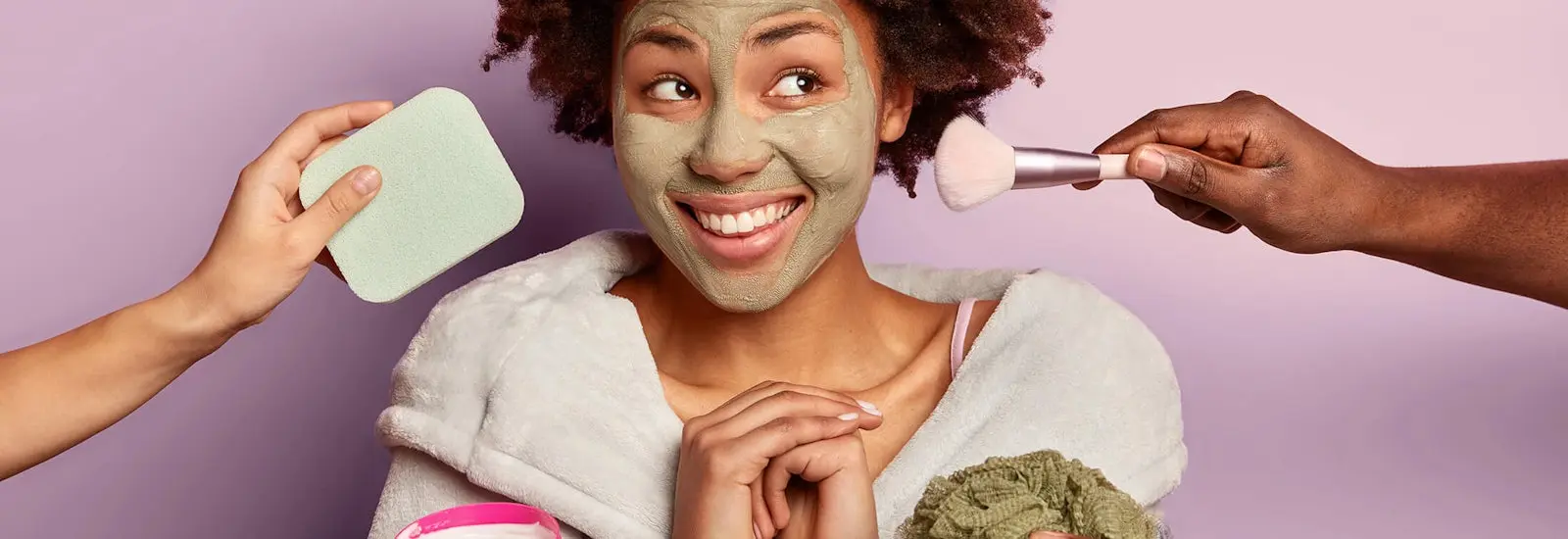Today there are so many serums, moisturizers, cleansers, toners and essences on the market. And as a result, layering skincare ingredients has become a daily staple and is often the answer to addressing multiple complexion issues.
However, the sheer number of ingredients that benefit skin can start looking like a chemistry experiment — one that can either make your skin glow with good health, or wreck your natural barrier and pave the way for redness, sensitivity, itching and acne.
That's why it's time for a masterclass on skincare cocktailing. What are the ingredient combinations that will boost your skincare routine? And which ones should you stay away from at all costs? Read up to hone your beauty bartending skills!
What skincare products to combine
Like chips and salsa, or peanut butter and jelly, there are some skincare ingredients that are better when paired together. Yes, they are effective in their own right — just as one can still enjoy chips without the salsa — but combine them, and they will give outstanding results! That said, there are some ingredients that should never be used together, so it's a good idea talk with your dermatologist before you use any new products.
These are the power duos that work well together.
Retinol and Hyaluronic Acid
Retinol speeds up cellular turnover and collagen production to brighten the complexion and smooth away acne, hyperpigmentation, fine lines and wrinkles. However, it can be drying and sensitizing. Hyaluronic acid, on the other hand, is a natural humectant that helps the skin retain moisture.
Combining these two skincare ingredients allows for all the benefits of retinol, sans the dryness or irritation. So, the end result is smooth, flawless and moisturized skin with the perfectly plumped up glow. Two to choose: Neutrogena® Hydro Boost Water Gel Face Moisturizer with Hyaluronic Acid for Dry Skin along with the Neutrogena® Rapid Wrinkle Repair Retinol Pro+ .5% Power Serum.
At night, try the Neutrogena® Rapid Wrinkle Repair Night Face Moisturizer that combines retinol and hyaluronic acid.
Retinol and Peptides
While retinol is known for its acne fighting and anti-aging superpowers, peptides are naturally occurring amino acids that smooth and firm the skin. Together, the duo work in perfect synchronicity to keep your skin soft, bouncy and free of lines, with each boosting the benefits of the other. Plus, retinol also helps increase the skin's absorption of peptides.
Niacinamide and Salicylic Acid
Salicylic acid is an oil-soluble chemical exfoliator that can penetrate deep into pores and purge the dirt, debris, oils and dead cells that can be a breeding ground of acne-causing bacteria.
Niacinamide helps strengthen the skin barrier, which is vital in keeping out further bacteria and pollutants and locking in essential nutrients and moisture. It also calms inflammation, treats hyperpigmentation, regulates sebum production and reduces the appearance of fine lines and wrinkles.
When both come together — such as when you combine Neutrogena® Stubborn Texture Niacinamide Face and Neck Serum and Neutrogena® Rapid Clear Salicylic Acid Acne Treatment with Witch Hazel — they complement each other to keep skin looking flawless, bust chronic acne and reduce the appearance of large pores.
Benzoyl Peroxide and Hyaluronic Acid
Benzoyl peroxide can help wash away acne-causing bacteria, while simultaneously helping purge pores of excess dead cells and sebum. However, it is known to cause dryness. This makes hyaluronic acid its perfect partner as it allows benzoyl peroxide to work all its magic while your skin stays hydrated. Try the combo of the Neutrogena®Stubborn Acne AM Treatment and the Neutrogena® Hydro Boost Water Gel with Hyaluronic Acid for Dry Skin.
Vitamin C and Vitamin E
Both Vitamin C and Vitamin E are potent antioxidants that protect skin from free radicals to reduce the damage caused by environmental stressors such as the sun's rays, pollution and smoke. They also help skin rebound from cellular damage to help fade dark spots, boost elasticity, and minimize the look of wrinkles.
When used together, they help prevent the signs of premature aging by doubling down on oxidative damage. Vitamin E, found in the Neutrogena® Ultra Sheer Oil-Free Face Serum with Vitamin E SPF 60+ also helps stabilize the notoriously volatile nature of Vitamin C, found in the Neutrogena® Rapid Tone Repair 20% Vitamin C Serum Capsules.
Salicylic Acid and Glycolic Acid
While both glycolic acid and salicylic acid work wonders for acne-prone skin individually, using them in the same skincare routine will yield the best results.
Glycolic acid works on the skin's outer layer to help exfoliate and slough away dirt and debris, paving the way for salicylic acid to do its job below the surface. Salicylic acid then penetrates deep into the hair follicles to whisk away pore-clogging oils and dead skin cells, which are the main breeding grounds of acne-causing bacteria.
What skincare product combinations to avoid
There are some ingredients that simply should not be combined with each other. Retinol and alpha hydroxy acids (AHAs), for example, is a surefire recipe for irritation and a compromised natural barrier when used together. And retinol and benzoyl peroxide can deactivate each other when used together.
Here's what you need to know about ingredients that don't play nice together. It's recommended that you speak to your dermatologist before starting any new skincare products.
Retinol and Benzoyl Peroxide
They can cancel out each other while also leaving skin dry and irritated
Retinol and AHA/BHA
When used together, they can lead to over-exfoliation, which leaves skin dry, itchy, flaky, red and sensitive.
Vitamin C and Benzoyl Peroxide
Benzoyl peroxide oxidizes vitamin C, thereby negating its benefits.
Retinol and Salicylic Acid
Both dry out the skin and when used together can cause excessive irritation and redness.

Anubha Charan Guest Beauty Blogger
I am a skincare addict, book lover, shopaholic and world traveler, who can’t stay in one place!




